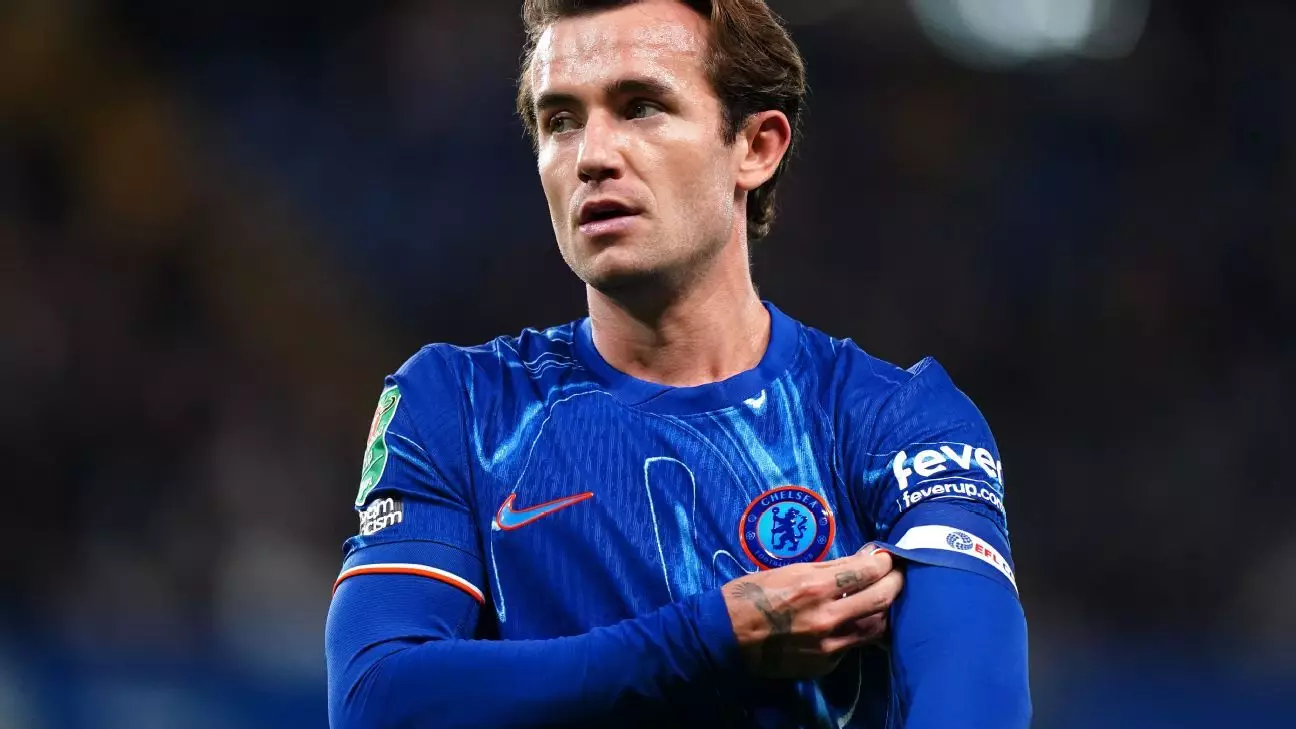Enzo Maresca’s tenure at Chelsea has been marred by controversy, particularly surrounding the treatment of left-back Ben Chilwell. Maresca’s acknowledgment of feeling “shame” regarding Chilwell’s lack of playing time reveals a conflicted approach to management. On one hand, he recognizes the dedication and professionalism that Chilwell has exhibited despite limited opportunities on the pitch. On the other hand, he has clearly stated that the player does not fit into his current plans, raising questions about the coach’s decision-making and squad management.
Chilwell, a player who has amassed 70 Premier League appearances for Chelsea, finds himself reduced to just one outing this season in the Carabao Cup. This sharp decline in his role is not merely a statistic but speaks volumes about the interplay between player form, coaching philosophy, and club dynamics. Maresca’s choice not to regularly include Chilwell seems puzzling, especially when the player in question has delivered consistent performances in the past.
Maresca’s assertion that Chilwell struggles with adapting to various tactical roles is particularly troubling. It suggests a narrow viewpoint; a refusal to recognize the versatile capabilities of a player who has thrived in multiple configurations throughout his career. This rigid outlook also casts doubt on Maresca’s flexibility as a coach, implying that he may be too anchored in his tactics to embrace the fluidity that modern football often demands.
Maresca’s comments about preferring other players—Malo Gusto, Reece James, and Marc Cucurella—highlight his vision for the team’s tactical approach. However, his statement about not favoring full-backs who contribute to both defensive and offensive plays contradicts the conventional understanding of a full-back’s role in today’s game. Good full-backs are expected to balance defensive responsibilities with the ability to support attacks, and by disregarding Chilwell’s fitness for this multifaceted role, Maresca may be limiting his team’s overall efficacy.
Indeed, the insistence on keeping players like Gusto and James in the forefront reveals a potentially rigid stance against maintaining squad depth. Teams benefit from rotational strategies, especially in high-stakes competitions, and overlooking a seasoned player like Chilwell could contribute to diminished morale among squad members who may fear for their own positions.
The situation raises essential discussions about player welfare in high-stakes environments and the impact of a lack of playing time on personal confidence and professional identity. For Chilwell, uncertainty looms as transfer rumors circulate, emphasizing the fragility of player positions even among established names. Maresca’s comments about Renato Veiga further underscore this complex landscape, where rising talents also grapple with limited opportunities amid a competitive squad.
Chelsea’s current form—which sees them without a win in their last five league matches—becomes an even more pressing concern. The need for cohesion within the squad is critical, especially as they prepare to face Bournemouth next. Maresca must not only navigate his choices regarding Chilwell but also find ways to ensure that all players feel included and valued.
Maresca’s tenure at Chelsea presents a complex tapestry woven with the threads of player management, tactical philosophy, and emotional intelligence in leadership. As the club moves forward, the manner in which they address these challenges will significantly influence both team performance and the overall morale within the club.

